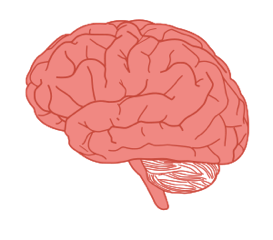 In an NPR broadcast on October 17, 2013, it was reported that the brains of sleeping mice clean themselves of toxins. Researchers have been surprised to discover that brain cells of mice shrank and cerebrospinal fluid was pumped in and out of the brain by the nervous system at “a very rapid pace”. Dr. Maiken Nedergaard, neurosurgery professor at the University of Rochester, thinks this can help explain the link between brain diseases and sleep disorders. Alzheimer’s disease is in that group of disorders.
In an NPR broadcast on October 17, 2013, it was reported that the brains of sleeping mice clean themselves of toxins. Researchers have been surprised to discover that brain cells of mice shrank and cerebrospinal fluid was pumped in and out of the brain by the nervous system at “a very rapid pace”. Dr. Maiken Nedergaard, neurosurgery professor at the University of Rochester, thinks this can help explain the link between brain diseases and sleep disorders. Alzheimer’s disease is in that group of disorders.Great Sleep, Healthier Brain
 In an NPR broadcast on October 17, 2013, it was reported that the brains of sleeping mice clean themselves of toxins. Researchers have been surprised to discover that brain cells of mice shrank and cerebrospinal fluid was pumped in and out of the brain by the nervous system at “a very rapid pace”. Dr. Maiken Nedergaard, neurosurgery professor at the University of Rochester, thinks this can help explain the link between brain diseases and sleep disorders. Alzheimer’s disease is in that group of disorders.
In an NPR broadcast on October 17, 2013, it was reported that the brains of sleeping mice clean themselves of toxins. Researchers have been surprised to discover that brain cells of mice shrank and cerebrospinal fluid was pumped in and out of the brain by the nervous system at “a very rapid pace”. Dr. Maiken Nedergaard, neurosurgery professor at the University of Rochester, thinks this can help explain the link between brain diseases and sleep disorders. Alzheimer’s disease is in that group of disorders.Sticky beta amyloid proteins are among the wastes removed from the mice brains during sleep. Dr. Nedergaard likened this process to the way a dishwasher works to clean dirty dishes. As the mice snoozed, the circulatory action of cerebrospinal fluid increased and was pumped in and out of the brain to rapidly to clean away toxic debris. Beta amyloid proteins, among other wastes, collect in brain tissues when mice are awake. Over time, their gummy quality gives amyloid proteins the ability to form plaques.
Although we would think this type of brain cleansing is an ongoing process, it is not. Dr. Nedergaard said that such scrubbing takes a lot of energy, noting, “It’s probably not possible for the brain to both clean itself and at the same time [be] aware of the surroundings and talk and move and so on.” This may be why people don’t think clearly after a sleepless night and could help explain why a long-term sleeplessness may result in death.
Although this cleaning phenomenon has not yet been observed in humans, it offers insight into brain diseases affecting humans. Dr. Randall Bateman, neurology professor at Washington University School of Medicine in St. Louis, has also been researching the effects of sleep on brain tissue. He thinks Nedergaard’s study may provide new ways to prevent Alzheimer’s by making it possible to “control sleep in a way to improve the clearance of beta amyloid and help prevent amyloidosis that we think can lead to Alzheimer’s disease.”
Leave a Reply